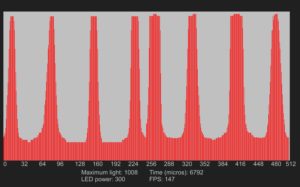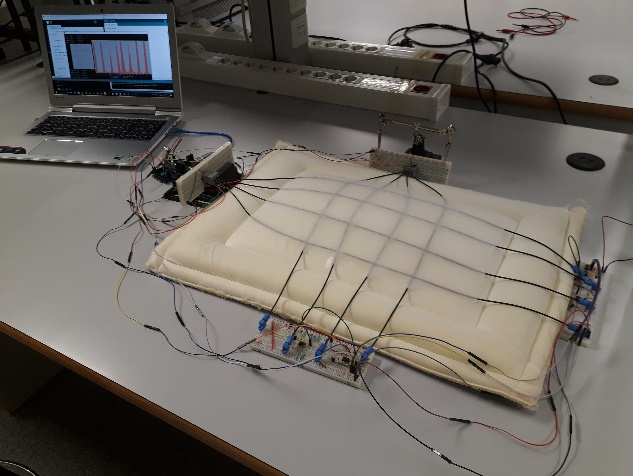The Valencian Research Agency (AVI) provided financial support to valorize, exploit and transfer to companies the scientific knowledge, results and technologies obtained by the research project entitled ‘Vital signs monitoring through fabric-embedded sensors’, undertaken by the Photonics Research Labs of the Institute of Telecommunications and Multimedia Applications (iTEAM).
Project justification
In the last few years, different types of electronic-based sensors embedded in textile have been researched. Nevertheless, the new approach proposed by the project (based on fiber optics) benefits from many advantages that can boost textile-embedded sensors capabilities in the future.
Firstly, optical fibers are immune to electromagnetic radiation that surrounds us. They don’t produce electromagnetic fields that could interfere with electronic devices such as cardiac pacemakers. On top of that, optical fibers are passive sensors, they don’t need to be powered, except for a central unit that collects all the data. Finally, fibers are light and small, what allows a higher monitoring capillarity comparing to electronic sensors.
Project goal
 The purpose of this project is to develop a mattress prototype capable of tracking vital signs through a network of advanced sensors made of polymer fibers. An irregular mesh will be designed to accurately locate every tracking point. This strategy has a side effect: the measurement collected from one sensor will be distorted by the information coming from its neighbors. As a result, a machine learning algorithm will be developed to obtain the right parameter value from each point.
The purpose of this project is to develop a mattress prototype capable of tracking vital signs through a network of advanced sensors made of polymer fibers. An irregular mesh will be designed to accurately locate every tracking point. This strategy has a side effect: the measurement collected from one sensor will be distorted by the information coming from its neighbors. As a result, a machine learning algorithm will be developed to obtain the right parameter value from each point.
All this should be achieved minimizing costs. Sensors should therefore be simple, multiparametric, conventionally fabricated and easy to place in the fabric during production run. For that reason, iTEAM joined efforts with the Textile Industry Research Association (AITEX), which is a Spanish leading research and innovation center and provider of advanced technical services to the textile industry.
Expected results
The main outcome of this project will be the development of novel optical sensors easily integrable in everyday textile products from a wide range of industrial sectors including medicine, sports, military and automotive. This will create a new set of smart textiles that will provide new functionalities while preserving their appearance and comfort. Nowadays, for example, thousands of patients are physically connected to a medical machine to get their vital signs monitored. This will be tackled in the near future by tiny optical sensors embedded in their mattress or clothes, what will considerably improve their living conditions.

